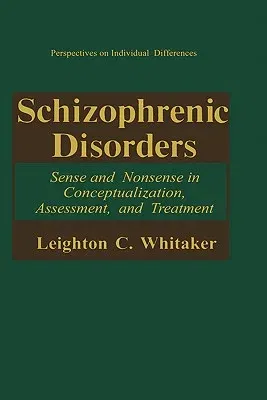Leighton C Whitaker
(Author)Schizophrenic Disorders:: Sense and Nonsense in Conceptualization, Assessment, and Treatment (1992)Hardcover - 1992, 31 July 1992

Qty
1
Turbo
Ships in 2 - 3 days
In Stock
Free Delivery
Cash on Delivery
15 Days
Free Returns
Secure Checkout

Part of Series
Perspectives on Individual Differences
Part of Series
Microdevices: Physics and Fabrication Technologies
Part of Series
Perspectives on Individual Differences Perspectives on Indiv
Print Length
256 pages
Language
English
Publisher
Springer
Date Published
31 Jul 1992
ISBN-10
030644156X
ISBN-13
9780306441561
Description
Product Details
Author:
Book Edition:
1992
Book Format:
Hardcover
Country of Origin:
US
Date Published:
31 July 1992
Dimensions:
23.39 x
15.6 x
1.75 cm
Genre:
Mentally Challenged
ISBN-10:
030644156X
ISBN-13:
9780306441561
Language:
English
Location:
New York, NY
Pages:
256
Publisher:
Series:
Weight:
562.45 gm